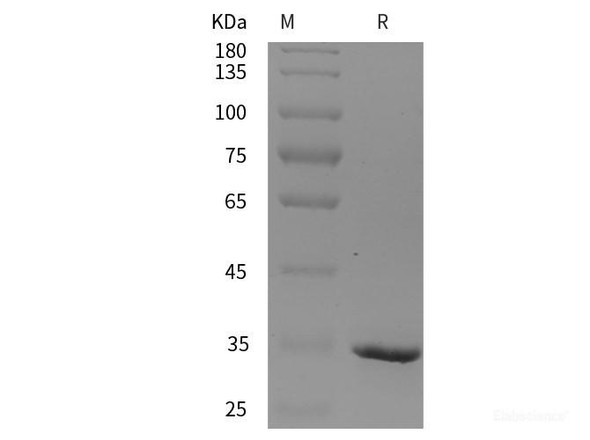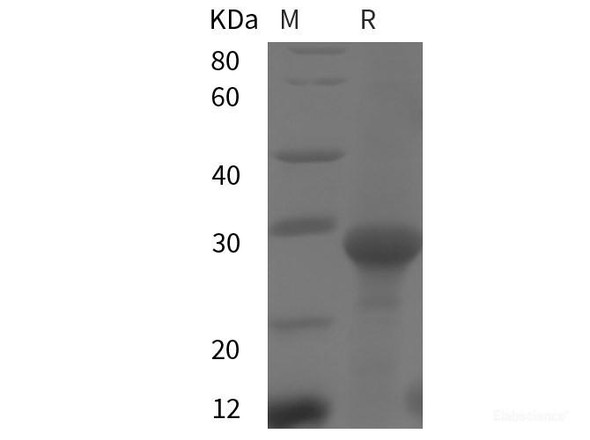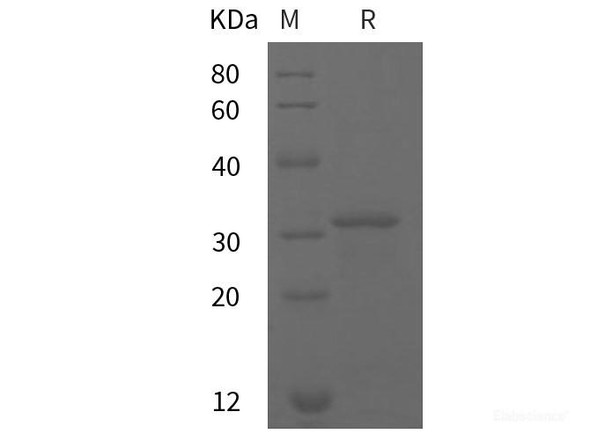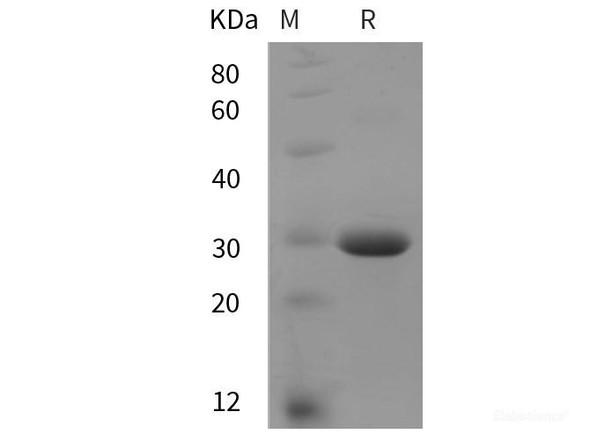Rat AIF-M1 Recombinant Protein (His tag)
- SKU:
- RPES5886
- Product Type:
- Recombinant Protein
- Species:
- Rat
Frequently bought together:
Description
| Product Name: | Rat AIF-M1 Recombinant Protein (His tag) |
| Product Code: | RPES5886 |
| Size: | 20µg |
| Species: | Rat |
| Expression Host: | E.coli |
| Synonyms: | AIFM1, Apoptosis inducing factor 1, mitochondrial, Apoptosis inducing factor, CMTX4, COWCK, COXPD6, Harlequin, mitochondrial, PDCD 8, Programmed cell death 8, Striatal apoptosis inducing factor |
| Mol Mass: | 16.39 kDa |
| AP Mol Mass: | 18 kDa |
| Tag: | N-His |
| Purity: | > 95 % as determined by reducing SDS-PAGE. |
| Endotoxin Level: | Please contact us for more information. |
| Bio Activity: | Testing in progress |
| Sequence: | Arg 150-Val 299 |
| Accession: | Q9JM53 |
| Storage: | Generally, lyophilized proteins are stable for up to 12 months when stored at -20 to -80°C. Reconstituted protein solution can be stored at 4-8°C for 2-7 days. Aliquots of reconstituted samples are stable at < -20°C for 3 months. |
| Shipping: | This product is provided as lyophilized powder which is shipped with ice packs. |
| Formulation: | Lyophilized from sterile PBS, pH 7.4. Normally 5 % - 8 % trehalose, mannitol and 0.01% Tween80 are added as protectants before lyophilization. Please refer to the specific buffer information in the printed manual. |
| Reconstitution: | Please refer to the printed manual for detailed information. |
| Background: | Probable oxidoreductase that has a dual role in controlling cellular life and death; during apoptosis, it is translocated from the mitochondria to the nucleus to function as a proapoptotic factor in a caspase-independent pathway, while in normal mitochondria, it functions as an antiapoptotic factor via its oxidoreductase activity. The soluble form (AIFsol) found in the nucleus induces 'parthanatos' i.e., caspase-independent fragmentation of chromosomal DNA. Interacts with EIF3G,and thereby inhibits the EIF3 machinery and protein synthesis, and activates casapse-7 to amplify apoptosis. Plays a critical role in caspase-independent, pyknotic cell death in hydrogen peroxide-exposed cells. Binds to DNA in a sequence-independent manner. |










